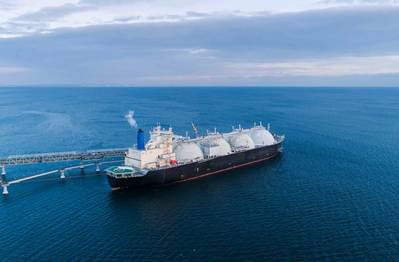Egypt To Buy Up To 160 LNG Cargoes Through 2026
Egypt has reached agreements with several energy firms and trading houses to buy 150 to 160 cargoes of liquefied natural gas, as it ramps up purchases to meet power demands despite strained government finances, industry sources said.
The world's most populous Arab country has endured rolling blackouts over the past two years as natural gas supply fell short of demand. It returned to being a net importer of gas last year, buying dozens of cargoes and abandoning plans to become a supplier to Europe as domestic production tumbled.
But the cost of keeping the lights on is pressuring the resources of a government already facing a cost of living crisis, currency woes and slowing economic growth, which have forced it to seek help from the International Monetary Fund.
The LNG deals represent Egypt's largest ever import purchases and will cost it over $8 billion at current prices.
Egypt's Ministry of Petroleum and the Egyptian Natural Gas Holding Company did not immediately respond to Reuters' request for comment.
Agreements have been reached with global energy companies and trading houses, including Saudi Aramco, Shell, Vitol, Trafigura, BGN, SOCAR, and PetroChina, the industry sources familiar with the matter told Reuters.
Between 50 and 60 cargoes will be used to cover this year's demand. This is on top of 75 cargoes Egypt purchased earlier this year. The rest will be delivered through the end of 2026.
This would make a total of 235 cargoes for this year and next.
The cargoes were priced at a premium of $0.70-$0.75 above the gas price at the Dutch TTF hub, with a nine-month deferred payment.
Cairo has the flexibility to defer cargoes and the option of getting additional LNG cargoes from some companies if needed.
Based on a standard-sized cargo of 72,000 metric tons, "this is just shy of 8 million tons per annum, if deliveries are spread equally over the two years," said Martin Senior, head of LNG pricing at Argus.
The figure eclipses annual LNG production of both Trinidad and Tobago and the UAE, and is higher than the imports of Belgium, Britain or Kuwait, he added.
Egypt's large import volumes are not expected to cause significant market tightness next year, however, as more liquefaction capacity comes online, he said.
Egypt has already bought 2.25 million tons of LNG this year, data from S&P Global Commodity Insights shows, the equivalent of almost 90% of its total purchases last year. And the number could be even higher if imports via Jordan are added.
Aly Blakeway, manager of Atlantic LNG at S&P Global Commodity Insights, said the latest purchases by Egypt come as maintenance is being carried out in the U.S. and Norway and as Europe is undertaking its summer injection cycle.
Asian demand is also expected to pick up in August, he said.
"With Europe still needing to refill its storages ahead of winter and expected buying interest from Korea and Taiwan in the peak summer months, Egypt's bid for LNG may lead to further competition this summer for seaborne LNG cargoes," he added.
Egypt is upgrading its infrastructure in Alexandria and Ain Sokhna to handle increased LNG cargo volumes. It currently operates three floating storage and regasification units, with a fourth expected to be supplied by Turkey's state-owned energy firm BOTAS.
(Reuters)







